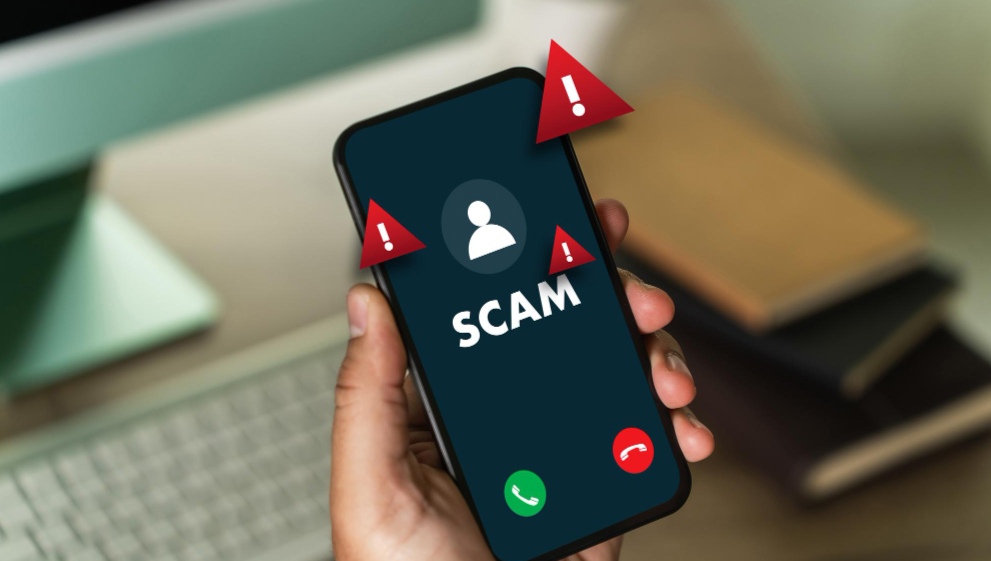Are you aware of the latest mobile scam- phone spoofing? It is a deceptive tactic where scammers manipulate caller IDs to appear as though the call is coming from a legitimate or familiar number, and poses a serious threat.
With the increasing frequency of scam calls, phones remain a preferred channel for these fraudulent activities. The immediacy of phone conversations makes it easier for scammers to deceive victims. In 2021, one Indian spammer made a staggering 202 million spam calls from the same number!
Hence, considering the range of threats from these scams, understanding their implications is crucial, and learning how to prevent phone spoofing is essential for protecting yourself from these deceptive practices.
What is Phone Spoofing?
Phone spoofing typically involves using VoIP (Voice over Internet Protocol) technology to mask the true origin of a call. Scammers use this technique to make it seem as though they are calling from a trusted number, such as your bank, a government agency, or even someone from your contact list. They may then trick you into revealing sensitive information.
Caller ID spoofing is at the heart of this process, where the displayed number is manipulated to trick you into answering the call. For instance, you might receive a robocall that claims to be from your bank, asking for your account details. In reality, the call is from a scammer looking to steal your information.
Another common scenario is phishing attempts, where spoofed calls trick you into sharing sensitive personal information.
Risks Associated with Phone Spoofing
Falling victim to phone spoofing can lead to various serious consequences. The most common risks include:
Financial Scams
- Unauthorized Transactions: Scammers may trick you into giving away your bank details or credit card information, leading to unauthorized transactions.
- Account Takeovers: Scammers may gain access to your account information, allowing them to take control of your accounts and conduct malicious activities.
- Financial Losses: Phone spoofing can result in significant financial losses, either through direct theft or by tricking you into investing in fraudulent schemes.
Identity Theft
- Personal Information Theft: Scammers may gather enough personal information to steal your identity, which can result in further financial losses and legal troubles.
- Credit Score Damage: Identity theft can lead to damaged credit scores, making it difficult to obtain loans or credit in the future.
- Legal Issues: Victims of identity theft may face legal issues, such as fraudulent charges or lawsuits.
Business Risks
- Data Breaches: Spoofing can be used to trick employees into divulging sensitive company information, potentially leading to data breaches.
- Financial Fraud: Scammers may target businesses to gain access to financial information, leading to financial fraud and losses.
- Reputation Damage: Phone spoofing attacks can damage a business’s reputation, leading to lost customers and revenue.
Other Risks
- Personal Safety: In some cases, phone spoofing can compromise personal safety, such as when scammers access location information or personal data.
- Emotional Distress: Victims of phone spoofing may experience emotional distress, including anxiety, stress, and feelings of vulnerability.
Understanding these risks can help you take proactive measures to protect yourself from phone spoofing and its devastating consequences.
How to Identify Phone Spoofing?
Spotting a spoofed call can be tricky, but recognizing key signs can help avoid scams. A major red flag is mismatched caller ID information. For example, if you get a call from an unfamiliar number or area code claiming to be from a known entity like your bank or a government agency, it might be a spoofed call. Be wary if the caller is aggressive or refuses to verify their identity.
Other signs include poor communication skills, generic greetings, requests for payment via unusual methods like wire transfers or prepaid cards, and demands for sensitive information such as passwords or Social Security numbers. If the caller makes unexpected requests or pressures you for immediate payment, hang up and verify the call’s authenticity. Legitimate organizations won’t pressure you into giving sensitive information or making quick payments. By recognizing these warning signs, you can better safeguard yourself from phone spoofing and its risks.
What Can I Do To Stop Spoofing Calls?
To protect yourself from the dangers of phone spoofing, consider the following steps:
Block Spam Calls
- Use a call-blocking app to filter out spam calls.
- Utilize built-in smartphone features to block specific numbers or identify suspicious calls.
Verify Caller Identity
- Be cautious about sharing personal information over the phone.
- Hang up and verify the caller’s identity by contacting the company or person using a trusted phone number.
Stay Informed
- Educate yourself and others about the risks of phone spoofing.
- Stay informed about the latest spoofing tactics and techniques.
- Share knowledge with friends and family to create a community of vigilant individuals.
By following these steps, you can significantly reduce the risk of falling victim to phone spoofing and protect your personal information.
Take Control of Your Digital Security with Quick Heal!
Phone spoofing is a growing threat that requires vigilance and proactive measures to combat. By understanding what phone spoofing is, recognizing the risks, and knowing how to stop phone number spoofing, you can better protect yourself and your personal information.
To further safeguard your digital assets, consider complementing your phone security with robust antivirus and anti-malware solutions. Quick Heal, for instance, offers a range of products designed to protect computers and mobile devices from various cyber threats, including viruses, malware, spyware, ransomware, and phishing attacks. With features like real-time protection, a firewall, and malware defense, Quick Heal Total Security helps ensure the security and integrity of your systems and data.
Stay safe, stay informed, and take control of your digital security today at just Rs. 1591 with Quick Heal!
Check Out Our Full Antivirus Range



